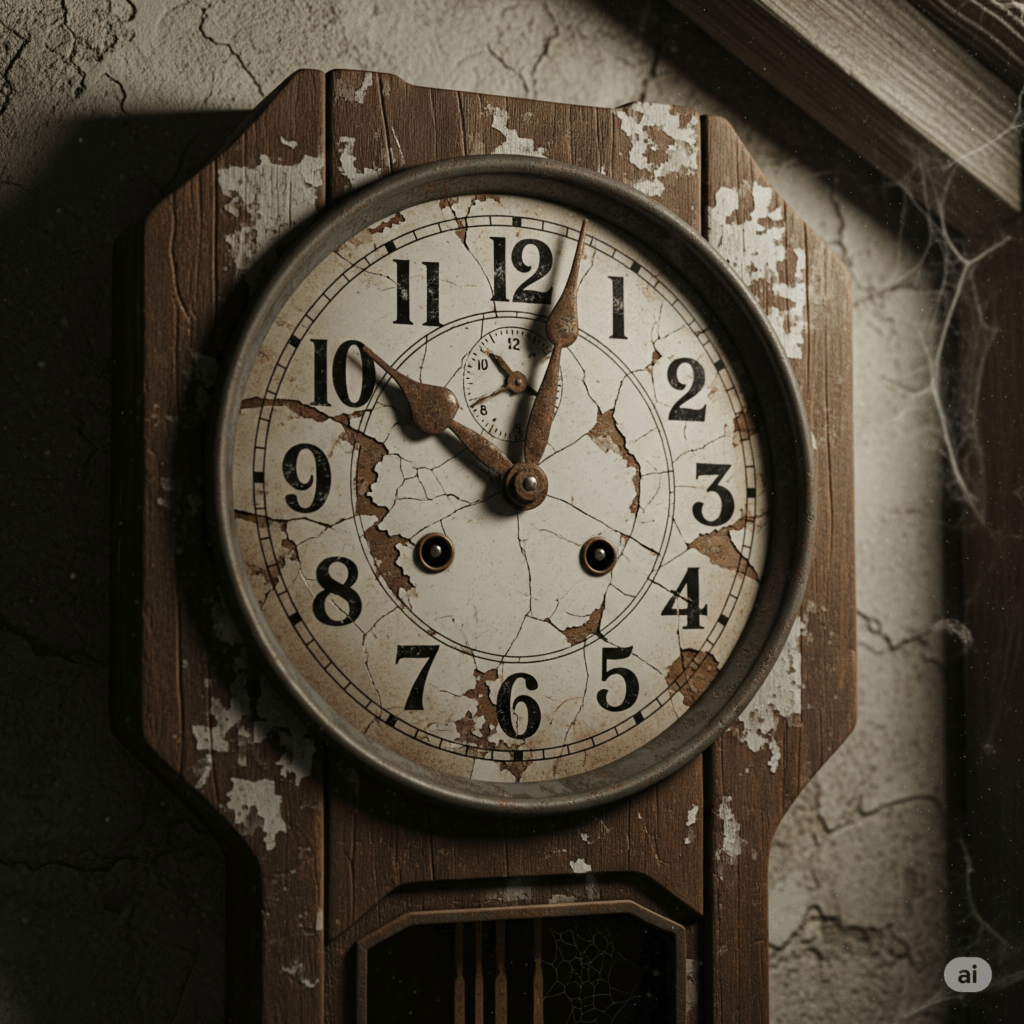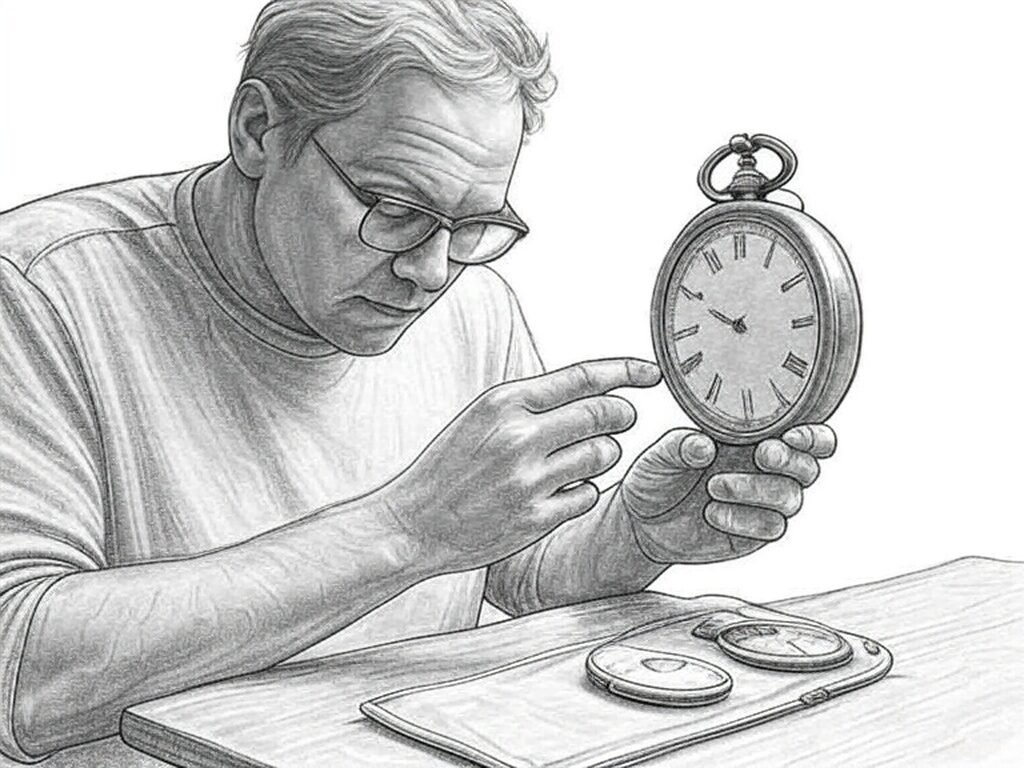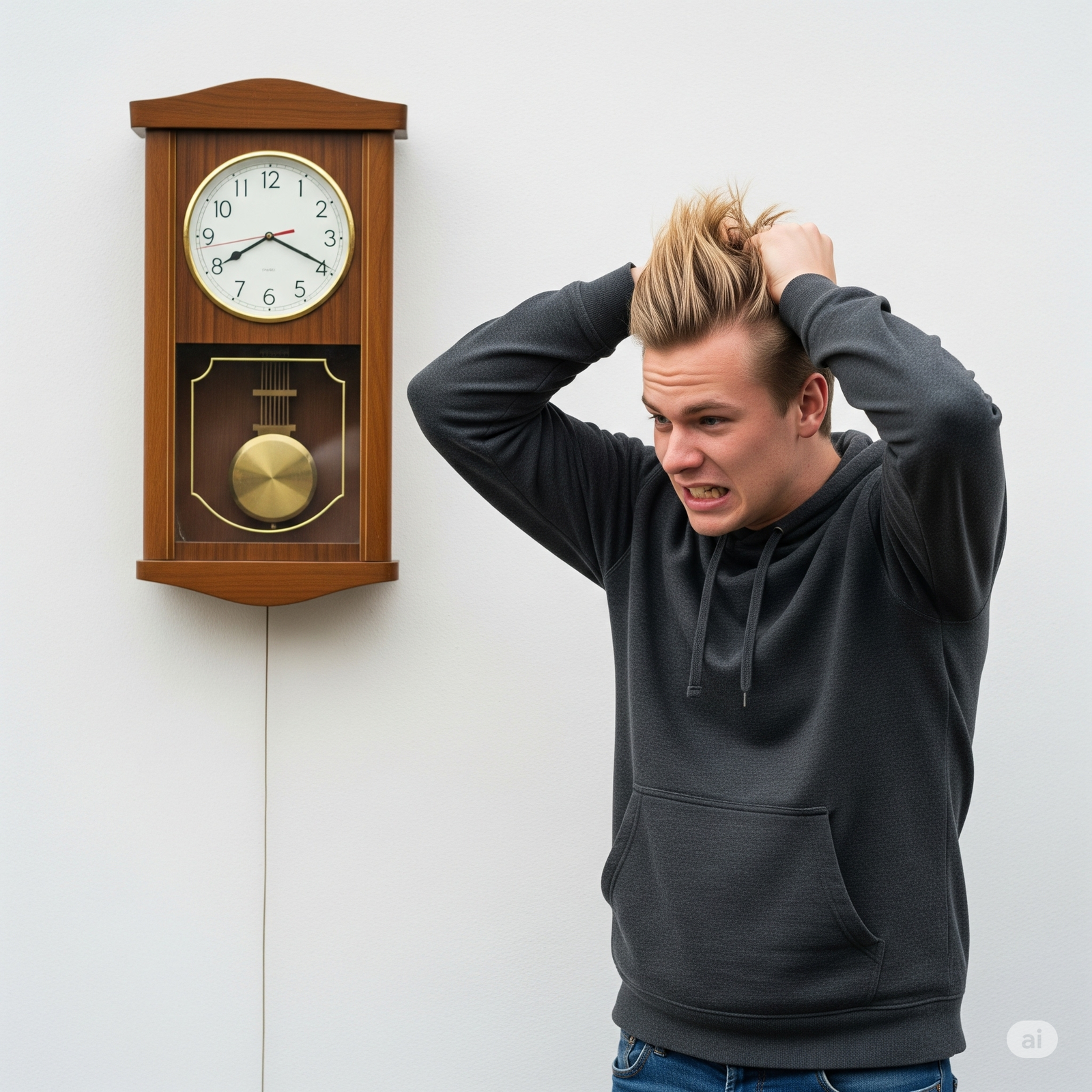Clocks are fundamental to keeping our lives in order, but when one stops ticking, it can throw everything off. Whether it’s a wall clock, mantel clock, or grandfather clock, a stuck timepiece can be more than a nuisance—it may be a signal of an underlying problem.
When simply swapping out your rechargeable batteries isn’t enough, this article will help you. We explore the most common reasons clocks stop working or get stuck, and offers practical solutions to get them back on time.
Common Reasons a Clock Gets Stuck
1. Battery Issues
Problem: The most common cause of a non-functioning clock is a dead or weak battery.
Common Symptoms: The second hand may twitch but not move, or the clock may stop entirely. The hour hand may not move at all, but prior to that it was moving but the clock lose time.
A weak or dying battery can also cause the clock to lose accurate time, even if it appears to be running.
Fix:
- Replace the battery with a fresh one (use a high-quality alkaline battery).
- Check that the battery is inserted correctly with proper polarity.
- If the battery is new, but it still does not work, then you might want to clean the terminals. Most times the clock fails because the terminals which connect to the battery are corroded or rusted, in which case a quick cleaning with sandpaper should address the issue.

2. Dust and Dirt Buildup
Problem: Over time, dust and debris can accumulate inside the clock mechanism, causing friction and impeding movement. Dust can also build up on plastic gears and obstruct the gear train, which may cause the clock to stop. These are issues that a new battery cannot address.
Fix:
- Open the clock carefully and use a soft brush or compressed air to clean the gears and movement. Pay special attention to cleaning plastic gears and ensuring the gear train is free of debris.
- For more intricate clocks, consult a professional for ultrasonic cleaning.
- You will also want to be careful when cleaning the mechanism as for the most part individual replacement parts may be hard to find.
3. Misaligned or Bent Hands
Problem: Clock hands (especially the second hand) may become bent or touch each other, the glass cover, or the dial, causing them to stick.
Fix:
- Remove the clock hands gently.
- Reattach them so they are parallel and not touching.
- Ensure they move freely before sealing the clock face.
- In some cases the clock hand may have to be bent into the right shape.
4. Worn-Out or Broken Movement
Problem: The internal mechanism (movement) of the clock may be worn out or damaged due to age or manufacturing defects.
Fix:
- Identify the type of clock movement (quartz, mechanical, or electric).
- For quartz clocks, consider replacing the entire movement (kits are widely available and inexpensive).
- For antique mechanical clocks, consult a professional horologist.
5. Mechanical Clock Needs Winding or Lubrication
Problem: Mechanical clocks need regular winding and occasional oiling. If neglected, a gear may seize, preventing the clock from functioning.
Fix:
- Wind the clock fully if it uses a key or pendulum mechanism.
- Apply specialized clock oil sparingly to pivot points.
- Do not use household oils—they gum up the mechanism. Most times it may start with the minute hand not functioning properly.
6. Magnetic or Electrical Interference Impacting Clock Mechanism
Problem: Quartz clocks, especially digital hybrids, can sometimes malfunction due to strong magnetic fields or power surges. Strong magnetic fields or electrical noise can disrupt the electronic train or strike train inside the clock, leading to malfunction.
Fix:
- Move the clock away from electronics, large speakers, or magnetic sources.
- If the clock is electric, check for power fluctuations or surges and use a surge protector.
7. Environmental Factors (Temperature and Humidity)
Problem: High humidity can corrode internal components; extreme cold or heat can affect lubricants and battery efficiency. Additionally, dust, humidity, or electromagnetic interference present in the room can impact the clock’s accuracy.
Fix:
- Place clocks in a stable, moderate environment.
- Avoid positioning clocks near windows, heaters, or humid areas like bathrooms.
8. Pendulum Clocks Out of Beat and Irregular Clock Movement
Problem: For pendulum clocks, being “out of beat” (uneven tick-tock sounds) can stop the clock.
Fix:
- Gently tilt the clock case to one side, then the other, while listening for a balanced “tick-tock.”
- Adjust the pendulum suspension or mounting until the sound evens out.
9. Improper Leveling
Problem: Clocks, especially wall and grandfather types, must be level to function properly. The position of the clock, particularly when you hang it on the wall, can affect its operation and may cause issues if not properly oriented.
Fix:
- Use a spirit level to ensure the clock is perfectly horizontal.
- Adjust wall brackets, clock feet, or wedges as needed.
- After adjusting the clock’s position, make sure it is securely hung to maintain proper function.
When to Seek Professional Help?
If you’ve tried the above fixes and your clock still won’t run properly, it may be time to consult a clock repair professional. This is especially true for antique, heirloom, or complex mechanical clocks that may have fragile or intricate mechanisms.
Preventative Wall Clock Maintenance Tips
- Clean your clock gently every 6–12 months.
- Replace old batteries annually, even if the clock is still running.
- Keep mechanical clocks oiled and serviced every 3–5 years.
- Store clocks in a dry, temperature-stable area.
The Crux
A stuck clock isn’t just a broken tool—it’s a puzzle waiting to be solved. Most issues are minor and easily fixed with some basic tools and a bit of care. By understanding the common causes and how to address them, you can extend the life of your timepiece and keep things ticking along right on schedule.

